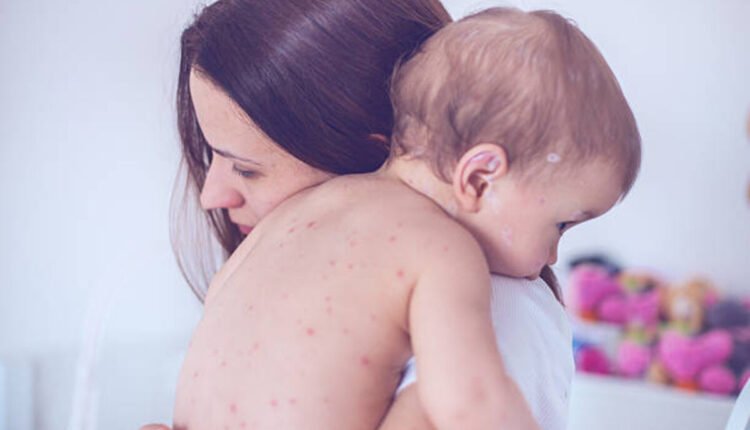Measles – How Contagious is Measles?
If you suspect you may have measles, it is vital to seek medical care as soon as possible. This disease is highly contagious, and medical professionals may want to make special arrangements to visit you at home, which can help reduce your risk of spreading the infection. If you are unsure if you have the illness, you can use the Ada app to help you assess your symptoms.
Contagiousness
The highest contagiousness of measles is associated with the coughing coryza phase, which produces droplets that favor viral transmission. The virus is brutal to eradicate from the body and is only sustained in human populations through long-term, uninterrupted transmission chains. In addition, measles does not exhibit latent infectious states and is not detected in animal reservoirs. Because of its high contagiousness, measles occurs in cyclical outbreaks with more extended incubation periods.
The high contagiousness of measles can lead to severe consequences for those who have not received the vaccine. However, some measures can reduce the chances of complications. One simple measure is to increase vaccination rates for children and adults. The vaccination coverage of a country is one factor that can reduce the incidence of measles.
In recent years, outbreaks of measles have declined in the United States. Since 1990, there have been fewer imported cases compared to previous years. The number of imported cases dropped from over 120 in 1990 to 53 in 1993. This decrease is primarily due to a decline in cases from Mexico and other Latin American countries. Previously, most imported cases came from the Western world and East Asia, known for poor measles control.
Symptoms
Measles is a highly contagious virus. It stays active in the air for two hours after a person coughs or sneezes. This allows it to infect as many as ninety percent of those around the infected person. Measles is a severe condition that can lead to severe complications, including paralysis, brain damage, and death. A blood test is the only way to confirm if you have measles.
People of all ages should avoid contact with people who have measles. However, the disease can harm pregnant women, people with weakened immune systems, and young children. In addition to serious health problems, it can lead to premature birth, low birth weight, and fetal death. This is why measles vaccination is recommended by the U.S. Centers for Disease Control and Prevention (CDC).
The most common measles symptom is a red, splotchy rash that develops on the skin. The rash usually starts on the face and moves downward. The spots may join together and become itchy. The rash usually lasts for two to three days.
Treatment
Treatment for measles focuses on preventing the spread of the infection. Prevention includes practicing good hand hygiene and not sharing personal items, including toothbrushes, utensils, and drinking glasses. People who are pregnant or who have weakened immune systems should also avoid exposure to measles.
In healthy individuals, measles can be treated at home using non-prescription medications. These include acetaminophen and ibuprofen. Cough syrups and throat lozenges are also effective. For children, a cool-mist humidifier can relieve coughing and soothe respiratory passages. Infants and young children may also be given acetaminophen, reducing fever and easing discomfort. However, aspirin should not be given to children with measles because it can cause Reye’s syndrome. Antibiotics are also given to children who develop pneumonia or ear infections.
When a child first has the signs of measles, they should seek medical care immediately. Although the disease is typically self-limited, some complications can require hospitalization. For instance, about one in 20 children with measles develop pneumonia, an infection of the lung tissue. This is one of the most common causes of death in children with measles. Another serious complication is brain infection, known as encephalitis, which results in brain swelling. A child with this infection may experience permanent intellectual disabilities or hearing loss.
Prevention
Prevention of measles involves maintaining a healthy lifestyle and taking the necessary steps to prevent contracting the disease. Although the chances of catching measles are low, protecting yourself and your family from this highly contagious disease is essential. The first step is to get the MMR vaccine. The vaccine helps to prevent the development of measles and can help prevent complications such as pneumonia.
The vaccination program is effective in reducing measles cases. The high coverage rates of the MMR vaccine for school-aged children have resulted in improved measles control. Vaccination has led to nearly total measles eradication in the United States since 2000.
The vaccination provides adequate protection against measles, but some people cannot receive the vaccine because of certain health conditions. Ideally, 93-95 percent of people should be protected against the disease. According to the World Health Organization (WHO), over 140,000 people worldwide died from measles in 2018. The majority of measles deaths occurred in children under five years of age. The disease is highly contagious and can cause serious complications.


